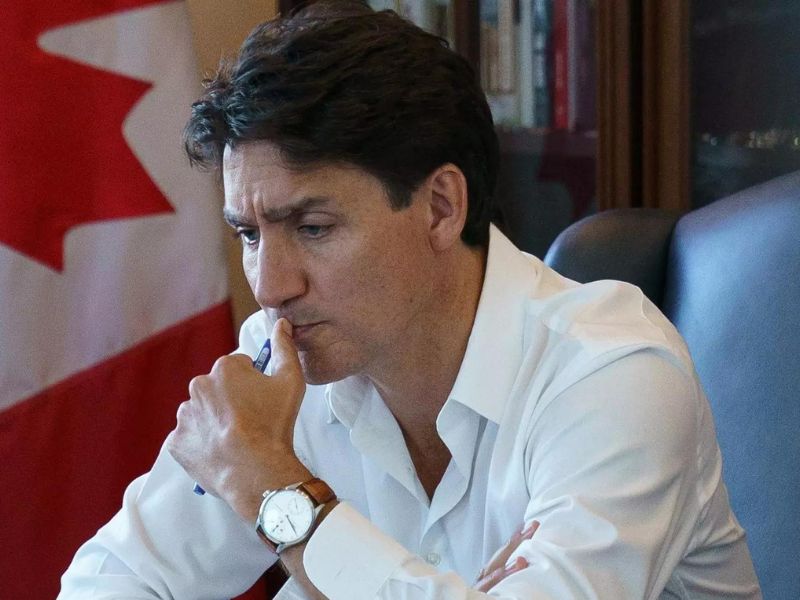Canada’s New Tariffs on Chinese Electric Vehicles: A Bold Move in Global Trade Tensions
In a significant escalation of global trade tensions, Canada announced on Monday that it is imposing a 100% tariff on imports of Chinese-made electric vehicles (EVs), mirroring similar actions taken by the United States. This move comes amid growing concerns in the West about China’s subsidies, which are seen as giving its industries an unfair competitive edge in the global marketplace.
The choice to execute these taxes was affected by talks between U.S. national security counsel Jake Sullivan and Canadian Prime Serve Justin Trudeau, at the side of other Cabinet priests. Sullivan, who is planning to visit Beijing, emphasized the significance of a joined-together front in tending to the challenges posed by China’s financial hones. The taxes reflect a broader methodology by Western countries to neutralize what they see as out-of-line exchange hones by China.
Canada’s Strong Stance Against Chinese Subsidies

Prime Serve Trudeau made it clear that Canada’s choice to force these taxes could be a coordinated reaction to China’s state-directed arrangements, which have been blamed for misshaping worldwide markets. He highlighted that China’s endowments permit its companies to offer items, especially EVs, at costs distant underneath showcase esteem, undermining competitors in other nations.
“Actors like China have chosen to donate themselves an out-of-line advantage within the worldwide marketplace,” Trudeau expressed. This estimation was resounded by Agent Prime Serve Chrystia Freeland, who noted that Canada isn’t alone in this battle. “We’re doing it in arrangement, in parallel, with other economies around the world that recognize that this is often a challenge that we are all facing,” she said. The inconvenience of these duties is seen as a vital step to ensure Canada’s burgeoning EV segment and other businesses are overpowered by cheap Chinese imports.
Impact on Chinese-Made EVs in Canada

One of the foremost quick impacts of this unused approach will be felt by Tesla, which imports EVs into Canada from its Shanghai plant. Whereas Tesla might delude these taxes by moving its supply chain to factories within the U.S. or Germany, the effect on Chinese brands that are starting to investigate the Canadian showcase may be critical.
Chinese EV monster BYD, which as of late built up a Canadian corporate substance, had arranged to enter the Canadian showcase as early as the following year. In any case, the unused duties seem to complicate these plans, constraining BYD and other Chinese producers to reassess their techniques for entering North American markets.
Expanding the Scope of Tariffs: Steel, Aluminum, and Beyond
In expansion to the 100% tax on EVs, Canada is additionally forcing a 25% tax on Chinese steel and aluminum imports. This move adjusts to concerns raised by the U.S. approximately China’s overproduction capabilities, which have driven to showcase immersion and discouraged costs all-inclusive.
Freeland moreover declared that Canada would dispatch a 30-day interview on the plausibility of amplifying taxes to other basic divisions, counting batteries, semiconductors, and sun-oriented boards. These industries are crucial to long-standing times of green innovation and financial security, and Canada has decided to secure them from what it sees as China’s predatory trade hones.
The Broader Geopolitical Context
The inconvenience of these duties isn’t almost exchanged; it reflects the broader geopolitical battle between the West and China. The U.S., beneath President Joe Biden, has been especially vocal approximately the got to neutralize China’s financial impact. Biden has contended that China’s endowments for EVs and other merchandise permit Chinese companies to offer items at misleadingly moo costs, undermining competitors and picking up an unjustifiable share of the worldwide showcase.
China, on the other hand, contends that its generation capabilities offer assistance to keep worldwide costs moo and bolster the move to a green economy. However, Western governments stay doubtful, seeing China’s approaches as a portion of a broader technique to rule key businesses, from EVs to sun-based vitality.
Potential Retaliation from China
The choice by Canada to adjust itself closely with the U.S. on these duties comes with dangers. Previous Canadian minister to China, Fellow Saint-Jacques, cautioned that Canada ought to be arranged for potential countering from China. Businesses such as barley and pork, which are critical Canadian sends out to China, may well be focused on. “China will need to send a message,” Saint-Jacques said, emphasizing that China has other sources for these products and may utilize this opportunity to apply weight on Canada.
Conclusion: A New Chapter in Trade Relations
Canada’s choice to force these duties marks a modern chapter in its exchange relations with China. Whereas pointed at ensuring Canadian businesses from out-of-line competition, the move too signals Canada’s commitment to standing near its partners in standing up to China’s financial methodologies. As the circumstance creates, the worldwide exchange scene will likely see advance shifts, with potential repercussions for businesses and shoppers alike. The coming months will be basic in deciding how these taxes will reshape Canada’s financial relations with China and the broader worldwide community.

